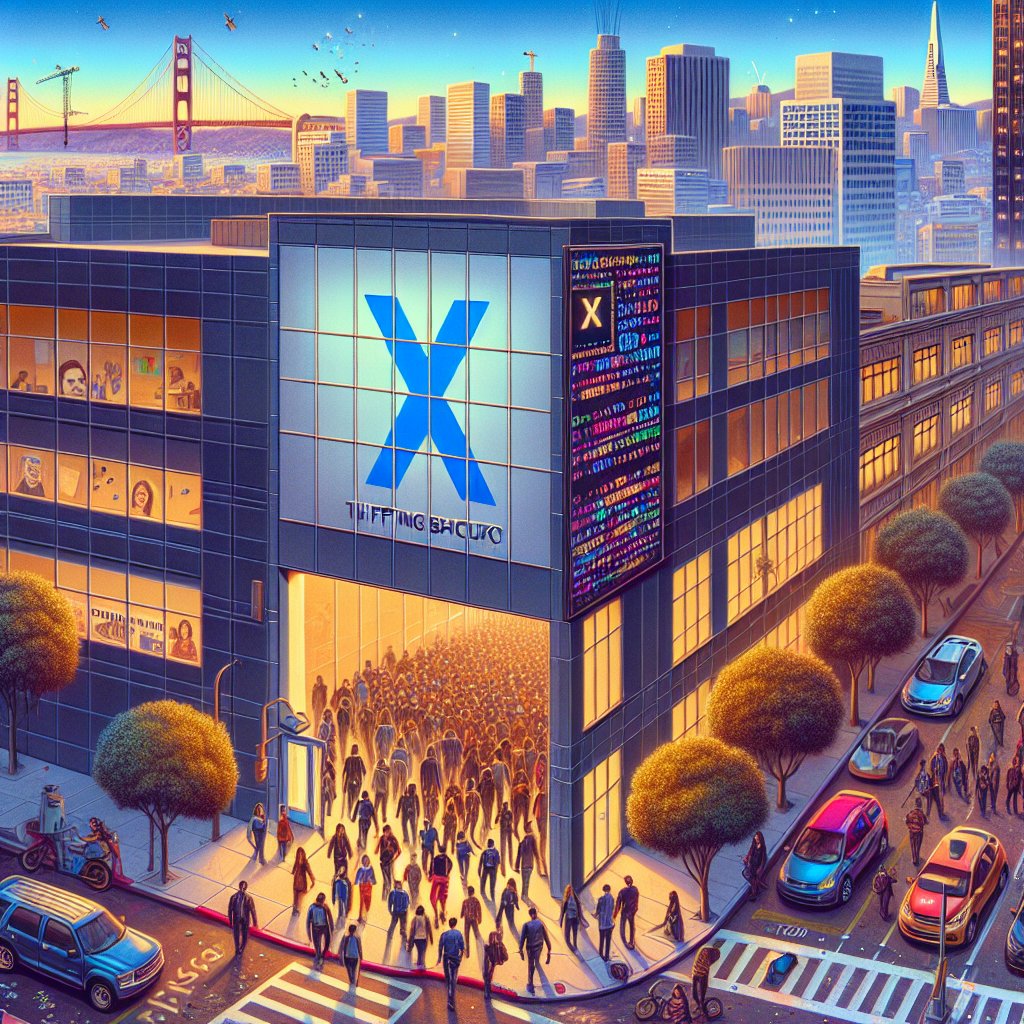Image created by AI
Elon Musk's X Leaves San Francisco Amid Disputes Over City Policies
Elon Musk's much-discussed exodus of X, formerly known as Twitter, from San Francisco's landscape marks a notable shift in the city's tech ecosystem. The move, confirmed by Mayor London Breed’s office, results from Musk's dissatisfaction with what he perceives as the city's extreme woke policies and handling of social issues, including homelessness.
Musk took control of Twitter in October 2022 and quickly implemented significant workforce reductions. As a result, only around 120 employees of X remain in San Francisco. These employees are slated to be relocated to offices in San Jose and Palo Alto, regions also home to Musk's AI startup, xAI. Additionally, the company plans to survey its workforce to ascertain their preferred work locations, signifying a step towards more flexible work environments.
The move is a stark contrast to the era when San Francisco's Mid-Market neighborhood thrived with tech-driven energy, significantly driven by Twitter's precense. The city had once offered attractive incentives, including the "Twitter Tax Break," to lure technology companies to rejuvenate the area. However, these incentives expired in 2019, and the neighborhood has not seen the anticipated revitalization.
San Francisco’s Chief Economist Ted Egan acknowledges the loss but views X as a shadow of its former self, its future teetering on uncertainty. The impact of the departure, thus, may not be as profound as it once could have been, due in part to the shift to remote work policies influenced by the pandemic.
Musk's troubled relationship with the city has been public and contentious since taking over the social media giant. His criticisms have gone from city policies to safety concerns, leading to the aforementioned decision to move X's headquarters to Austin, Texas—where Musk has deemed the business environment more welcoming.
The change underscores a broader trend of tech companies reassessing their need for expansive office space in San Francisco, a city still grappling to bring office workers back since the pandemic onset.
Despite the high-profile departure of X, San Francisco's mayor’s office remains optimistic, citing investments in the AI sector as a beacon of hope for its economic landscape. Companies like OpenAI and Scale AI have pledged commitment to the city, potentially heralding a shift from social media to AI as San Francisco's new tech cornerstone.
In response to Musk’s critique of policy affecting the mental health and LGBTQ community, city officials and many residents champion inclusivity and support for mental health issues, differing with Musk's stance on such matters. Musk’s comments reflect a broader controversy about how businesses, social issues, and policy intersect, particularly in cities like San Francisco, where political progressiveness is deeply entrenched.
As X vacates its iconic San Francisco office, which once symbolized the synergy between the tech industry and urban development, the city’s focus turns to supporting the array of businesses that choose to remain and flourish in its tech-savvy environment.










